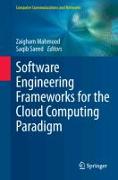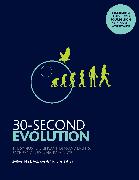Software Engineering Frameworks for the Cloud Computing Paradigm
BücherAngebote / Angebote:
With the emergence of cloud computing, traditional approaches to software engineering must be adapted in order to take full advantage of the benefits promised by cloud technologies.This timely and authoritative text/reference presents the latest research on Software Engineering Frameworks for the Cloud Computing Paradigm, drawn from an international selection of researchers and practitioners. The book offers both a discussion of relevant software engineering approaches and practical guidance on enterprise-wide software deployment in the cloud environment, together with real-world case studies.Topics and features:Presents the state of the art in software engineering approaches for developing cloud-suitable applicationsDiscusses the impact of the cloud computing paradigm on software engineering, including the semantic webOffers guidance and best practices for students and practitioners of cloud-based applications architectureExamines the stages of the software development lifecycle, with a focus on the requirements engineering and testing of cloud-based applicationsReviews the efficiency and performance of cloud-based applicationsExplores feature-driven and cloud-aided software design, presenting strategies for cloud adoption and migrationProvides relevant theoretical frameworks, practical approaches and current and future research directionsThis practical and clearly-structured volume is an ideal self-study primer for students of cloud computing and software engineering. Software engineers, application developers and IT infrastructure managers will also find the work to be an invaluable reference.Dr. Zaigham Mahmood is a researcher in the School of Computing at the University of Derby, UK, and a Senior Technology Consultant at Debesis Education. His other publications include the successful Springer book Cloud Computing for Enterprise Architectures. Dr. Saqib Saeed is an Assistant Professor in the Computer Science Department at Bahria University, Islamabad, Pakistan.
Folgt in ca. 15 Arbeitstagen




